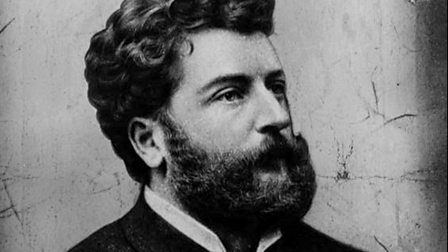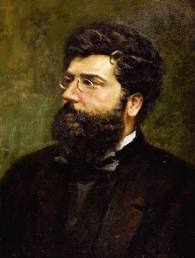Georges Bizet, a renowned composer of the Romantic era, left an indelible mark on the world of music with his captivating melodies and daring compositions. Born on October 25, 1838, in Paris, Bizet’s musical genius was evident from a young age. His extraordinary talent, coupled with his audacious artistic choices, cemented his place in history as one of the most influential composers of his time. This blog post delves into the captivating biography of Georges Bizet, exploring the highlights of his life and the enduring legacy he left behind.
Early Years and Musical Prodigy:
Georges Bizet’s musical journey began at the tender age of four when he started playing the piano. Recognizing his exceptional abilities, his parents nurtured his talent and provided him with formal musical training. At the age of nine, he entered the prestigious Paris Conservatoire, where he studied piano, harmony, and composition. It was here that Bizet’s talent flourished, and he began composing his own works, showcasing a maturity and depth beyond his years.
A Parisian Melting Pot:
Growing up in the vibrant city of Paris, Bizet was exposed to a rich tapestry of musical influences. The diverse sounds of the city, ranging from the grandeur of French opera to the passionate rhythms of Spanish music, shaped his musical style and ignited his creative spirit. Bizet effortlessly blended these influences, infusing his compositions with a unique and captivating energy that would set him apart from his contemporaries.
Breakthrough with “Carmen”:
Bizet’s breakthrough came with his magnum opus, “Carmen,” an opera that would become his greatest masterpiece. Premiered in 1875, “Carmen” initially received mixed reviews but quickly gained popularity and critical acclaim after Bizet’s untimely death. The opera’s fusion of powerful melodies, rich harmonies, and its portrayal of complex characters marked a turning point in the world of opera, revolutionizing the genre and earning Bizet a posthumous reputation as a visionary composer.
Enduring Legacy and Influence:
Although Bizet’s life was cut short at the age of 36, his influence continued to reverberate long after his passing. His compositions, characterized by their vibrant orchestration, expressive melodies, and dramatic flair, continue to captivate audiences and musicians alike. “Carmen” remains one of the most frequently performed operas worldwide, and its arias, such as the iconic “Habanera” and “Toreador Song,” have become staples of classical music repertoire.
Moreover, Bizet’s innovative approach to composition inspired future generations of composers, including Maurice Ravel and Claude Debussy. His ability to blend diverse musical styles and push the boundaries of conventional composition left an indelible imprint on the evolution of music.
Conclusion:
Georges Bizet’s life and musical career were characterized by brilliance, innovation, and untapped potential. His compositions, including the timeless opera “Carmen,” continue to captivate audiences and inspire musicians across the globe. Despite his tragically short life, Bizet’s artistic legacy endures as a testament to his exceptional talent and his willingness to challenge musical conventions. As we celebrate his contributions to the world of music, let us remember Georges Bizet as a true musical maverick, whose works will continue to resonate for generations to come.


Comments are closed